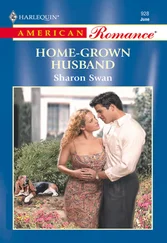I got out of the Chevy and looked up the hill in time to see a loaded train chug into the mill yards. Then I saw the boxcars move on in; I saw it through the hot, translucent aqua fence. The boxcars had their hump of pulpwood — the stump corpses of pine trees. These look like dead octopi, groping everywhere, strangled in the daylight. Then I got a big whiff from the wooden fart fog of the mill stacks again. Saw the aqua fence trying to shield me from the oily gears of the mill that I knew so well, and I said, “Jesus.”
“Jesus, take me out of this place.” I appealed to the divine Jesus of my church.
My mother comes in waking me up, waving a letter she’s already opened. I gather up the sheets around me. Have been sleeping naked, as usual, and my own body has become an immense bore to me. I have red welts all over me from standing nude with my air rifle and firing it against the wall almost pointblank, willfully suffering the riochets when they come back.
A distinguished little denominational college in Mississippi is offering me two years’ tuition on the basis of my musical talent. I’ve heard enough …
Mother, I don’t care about the rest, that a Dr. Livace, the chairman of the music department, happened to be sitting in on my performance last year at Shreveport with Mr. Medford. That this college is strong in music — believe me, says Mother. She was born in Mississippi and is wild for anything decent going on in that state. No, I’ve heard enough.
Never mind telling me … Mother confesses she wrote a letter to the college indicating I wanted to attend. She’s worried that she has intruded and has done too much in forcing me toward this one college. Not at all, Mother.
For, after all, the letters from Columbia, Harvard, Yale, Princeton, and Juilliard just haven’t been pouring in, have they? 118
I grab it I kiss her and thank her. I’m going to Hedermansever College, near Jackson, Mississippi. It sounds exotic to me. It means I am not going to be in Dream of Pines next year.
1 / Our Lady of Mississippi
I made it to Hedermansever College, driving a Thunderbird which I’d been awarded through pressure on the old man by my mother. The car was three years old, a ’57, navy blue. There was a mashed fender on the right, and the interior was like an old garden glove, but it was tight and fast. It had a cockpit top you could unlatch, take off, and store in the dorm basement on good days, for the open ride and the sunglasses.
I felt very precious in the oily leather seat; I was a pistol leaking music out its holster. My horn was in the well behind my seat. I had an intense suntan and scorched hair. There were California license plates on the T-bird which I hadn’t bothered to remove: Malibu Harry. It was all right if boys and girls thought that about me. Sneering, using the car radio music as my own accompaniment, I thought I was quite a piece of meat.
I liked the shade and the neatness of the curbs and the olden greenery of the place. General Grant had been here in 1862 or so, and liked it enough to stable his horses in the Old Chapel, that beauty of Georgian architecture. That was in the days when the Yanks were getting fed up and a lot of edifices were being burned up. The Confederates at Vicksburg were starving, the city of Jackson was on fire, and Grant was coming back west at last to meet Pemberton in Vicksburg on solid turf, and swallow him.
There Grant was, for me, half-drunk, slouched in an ashy-blue jacket in a room of the Old Chapel, interviewing petitioners — flushed nubile belles of the South ding-donging back and forth like flesh clappers in their hoop skirts. “Please, Ginral Grant, spare, oh spare … I’m in my last and only dress, and it’s just so smoky-smelling. I feel like a smoked ham.” She steps back, opens her knees, and a Minié ball rolls out from her petticoats. She stares at it as it rolls on the floor; Grant sees it. She is all marvelously eye-lashed wonder. “Someone must have shot at me . Oh, I did not expect this” . She faints, with careful rustling of petticoats and outflung arms. Other women seek him, all of them using the word Christian on him in different ways. “You are Christian, then? No, I do not mind if you smoke. Now, I have made my concession, I have allowed you to smoke in my presence, so you can make your own decision about burning us down.” They all want to know if he’s fighting harmless family houses or fighting a war in Christian gentleman style, Grant behind the desk badly wanting to use the spittoon. Grant is hungry for whiskey, food, everything.
A blond teenage sultreen appears around lunchtime — and Grant is starving — and means to lay it on the line about his keeping soldiers and fire away from her mansion. Her mansion is her dead daddy’s and she and her big sister are trying to have a small Christian women’s college in it They do not want to give it up, not even during the war. This little college, back in 1826, gave the first degree to a woman ever in the United States, the blond girl, Lady Love Deuteronomy, declares to Grant. It had its history — early poverty but always Christian culture. There were only girls out there, Ginral. What else? Grant still holds his face in that spittoon-seeking screw. Lady Love Deuteronomy sees she’s getting nowhere, and becomes, in desperation, a legend. She steps back and shuts the door. (From above in the chapel come down the soft knocks of horse hooves.) “I see,” she says, “your lunch is waiting for you on a tray in the hall. You’re having a steak and, I believe, dumplings. It’s nice you can have steak while the girls at the college are having field peas, pork rind, and water … Now though, Ginral, regarding your appetite, how would you like to have, well, this … me? .” She raises her dress, uncovering a succulent white ankle, a fine calf, a naked stark knee. Grant whimpers and heaves up out of his chair. He creeps, he flaps his lips; a vile breath of whiskey and tobacco rolls off him; his unfastened suspenders, like the tail of a beast, trail him on the floor. Grant grunts! But suddenly Lady Love Deuteronomy releases the hem of her dress, stiffens her breast, and from some corner of her waist which got by the shy soldiers in the hall, she fetches out a pistol, a silvery little snout that means no play. “Did you dream that I — You tragic Union hog. Have your shame , yes, be shame, Ulysses S. Grant! I have had my moment. Now dare burn our harmless women’s college.” All this while, Grant was disarming her. But he never dared, out of shame, to give orders to raze that Christian women’s college. He passed the very mansion, riding at the head of his columns on the way to Vicksburg. Lady Love herself stood on the porch and curtsied to him, Grant, the deflated punk, slinking toward Champion’s Hill and his seat as President of the U.S. While in her basement, attic, in cupboards and closets on all three stories, under the beds and in the kitchen out back, Captain Hannah and fifty mean lean horse corps guerrillas of the Confederacy lay perilous, breathless, and safe. Hannah and his men had run through Union lines, coming from the siege at Vicksburg, and having eaten at the women’s college, they were poised to do great attrition to Grant’s supplies. Only they were all sick. They had eaten rats, and moths and crickets and grass in Vicksburg, and every one of them had dysentery, so they did not become a thorn in the guts of the invaders. They couldn’t even crawl away from their own odor. Nevertheless, Lady Love Deuteronomy had saved them. She was the legend.
So it happened that Lady Love and Captain Hannah, after blushing intimacies as she served his illness, got married and were president and wife of the women’s college through the dire years of Reconstruction. New students had to know all details of the anecdote concerning General Grant and Lady L., along with other directives about playing cards and what to do in case there is an atheist in the group or dancing is suggested. Both Hannah and his wife were Baptists. Lady L. D. Hannah was hallowed in those days when the sad folks of the South didn’t have much to live on but a good joke pointing up Federal stupidity.
Читать дальше












